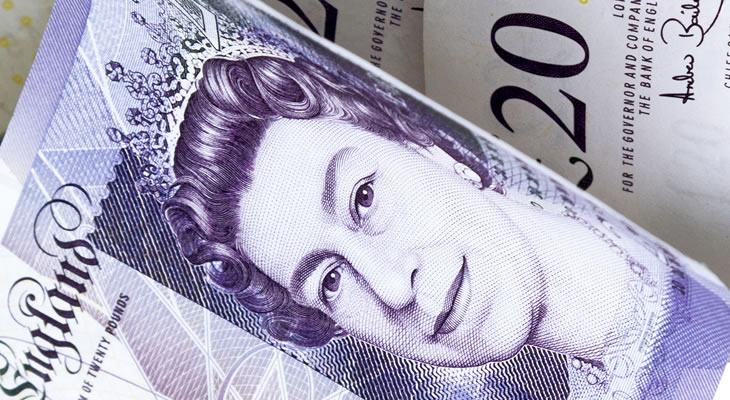The Pound (GBP) has fallen against the Euro (EUR) and other peers today, following the unexpected stagnation of UK inflation rates in May.
The year-on-year reading had been predicted to rise from 2.4% to 2.5%, but instead made no change.
This result had a negative effect on the Pound to Euro (GBP/EUR) exchange rate, due to the implications for UK interest rate hikes.
Without higher inflation, there would be no additional pressure on the Bank of England (BoE) to consider higher interest rates.
(Last updated 13th June, 2018)
Pound Sterling (GBP) has advanced against the Euro (EUR) on Tuesday afternoon, thanks to developments in the House of Commons.
MPs are voting on a number of amendments to the Brexit bill and signs of a compromise have supported Sterling.
This is still an ongoing voting session among MPs, however, so the GBP/EUR exchange rate could see further volatility before the end of the day.
(Last updated 12th June, 2018)
Higher UK Inflation Rates could Cause GBP/EUR Exchange Rate Rally
The Pound (GBP) has traded in a narrow range against the Euro (EUR) today, on the first of three key days for UK economic data.
Today’s UK unemployment and earnings figures have unsettled Pound Sterling, with the jobless rate remaining at 4.2% and the pace of earnings growth slowing.
Looking ahead, there could be similar levels of Pound Sterling volatility on Wednesday when UK inflation rate figures for May are released.
The readings are predicted to show growth for the year-on-year figure, with a rise from 2.4% to 2.5%.
This could have two positive effects, the first being an increased likelihood of a Bank of England (BoE) interest rate hike in 2018.
Higher inflation will put pressure on BoE officials to consider an interest rate increase, something long awaited by Pound traders.
Additionally, while putting pressure on the BoE higher inflation wouldn’t cause an immediate return to wage squeeze conditions for UK households.
As such, if inflation rises as forecast on Wednesday then the Pound to Euro exchange rate could improve.
Risk of GBP/EUR Exchange Rate Turbulence on UK Retail Sales Stats
Further ahead, the Pound to Euro exchange rate (GBP/EUR) could be affected by Thursday’s UK retail sales data, due out in the morning.
Readings for May are predicted to show year-on-year growth in sales levels, but a slower pace of expansion for the month-on-month figures.
UK high streets struggled earlier in the year because of poor weather – if levels of sales pick up then Pound Sterling (GBP) could appreciate against the Euro (EUR).
Annual readings are typically more high-impact than monthly ones, so a GBP/EUR exchange rate rise is by no means impossible before the end of the week.
Will Euro to Pound (EUR/GBP) Exchange Rate Decline on Slowing EU Industrial Output?
The Euro (EUR) is at risk of making losses against the Pound (GBP) on Wednesday morning, should Eurozone industrial production figures prove disappointing.
The readings for April are tipped to show a slowdown in year-on-year output levels, from 3% in 2017 to 2.8% in 2018.
The month-on-month reading could be more unsettling, as industrial production levels in April compared to March are tipped to shift from 0.5% to -0.5%.
Industrial output is only one aspect of Eurozone economic strength, but contracting monthly activity might still drag the EUR/GBP exchange rate down.
EUR/GBP Exchange Rate Volatility ahead on ECB Monetary Policy Meeting
This week’s main economic event for Euro traders will be Thursday afternoon’s meeting of European Central Bank (ECB) policymakers.
ECB officials aren’t expected to adjust interest rates but could still hint at future monetary policy tightening, boosting the Euro in the process.
The main focus for traders will be on quantitative easing (QE), the ECB’s practice of buying bonds to stimulate economic growth.
If officials believe that this measure is no longer needed and that it should be wound down, the Euro could rally because an ECB interest rate hike could be incoming.
On the other hand, if everything seems to be ‘business as usual’ at the ECB then the Euro could drop because of unmet EUR trader expectations.


Comments are closed.